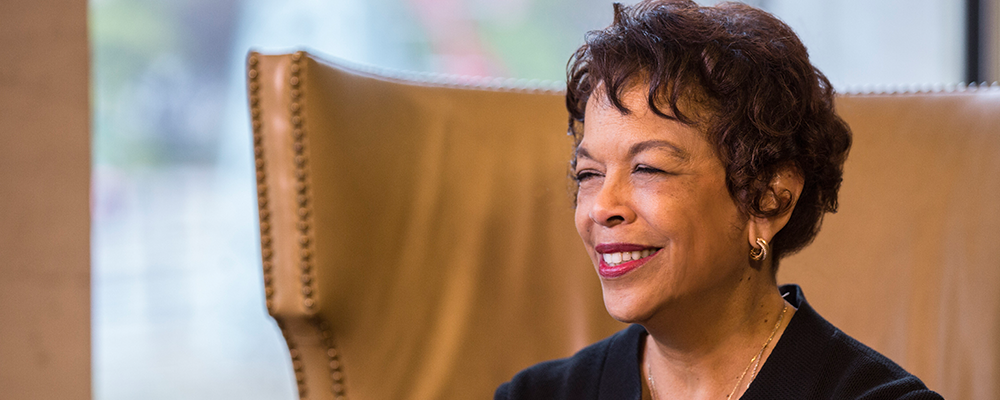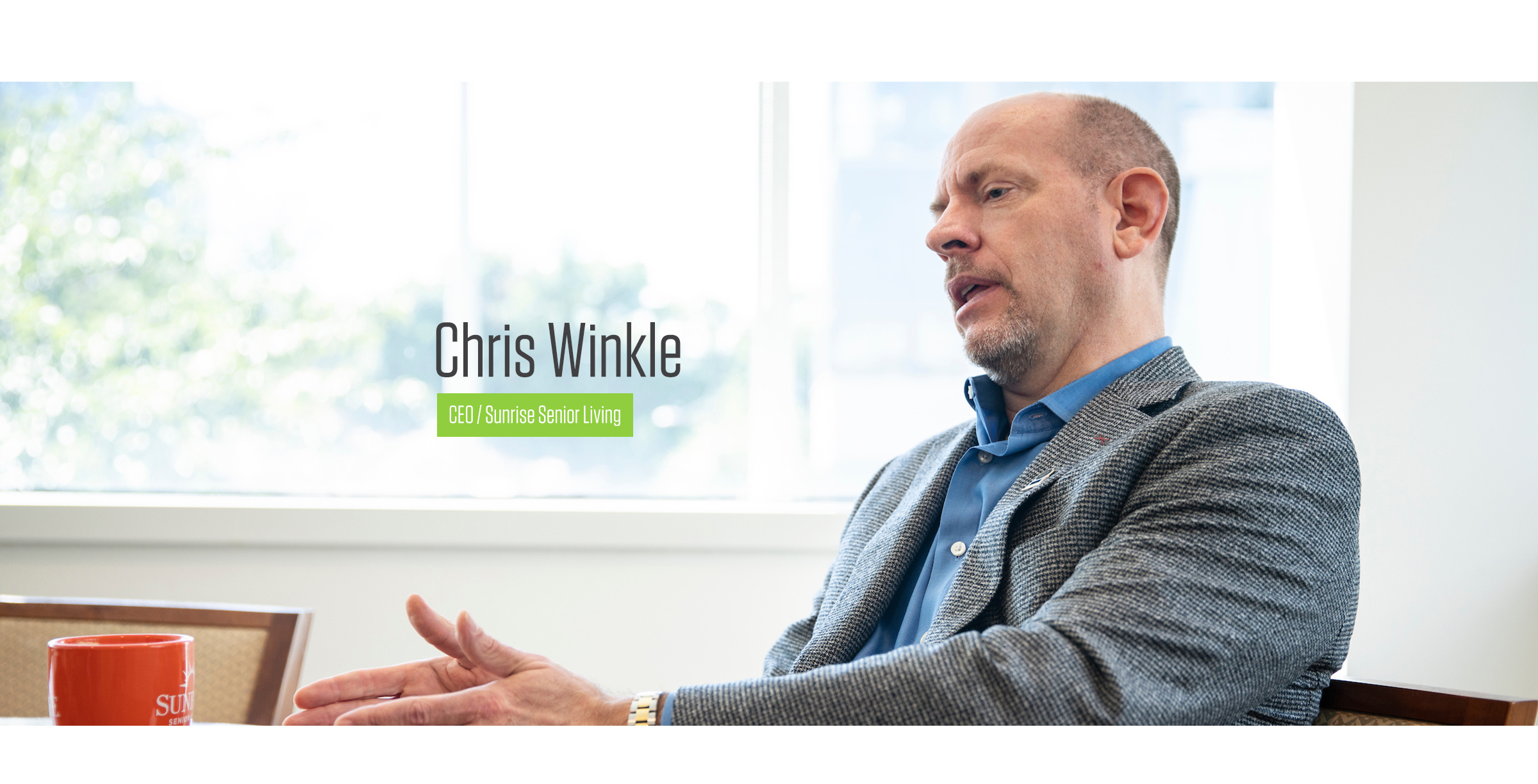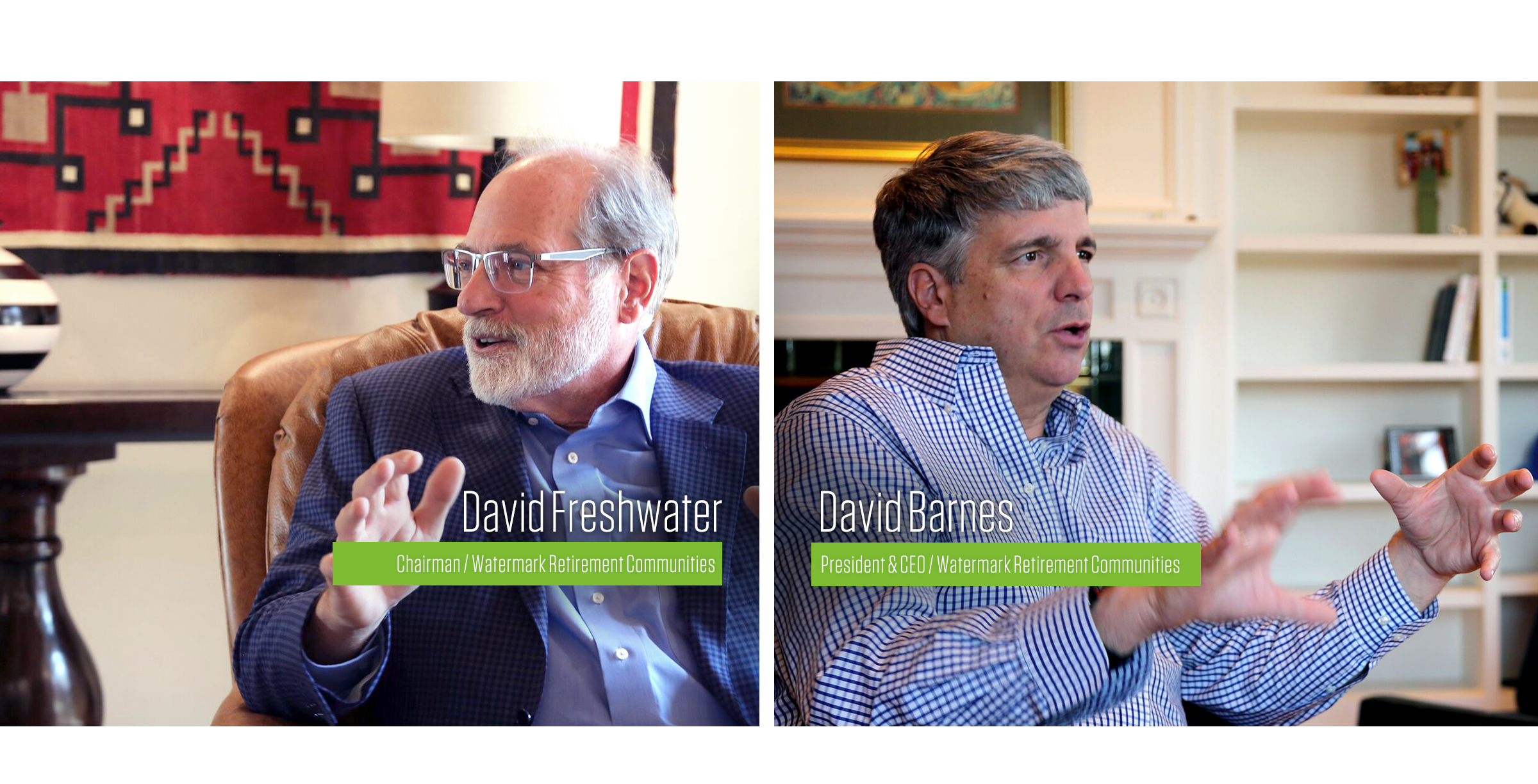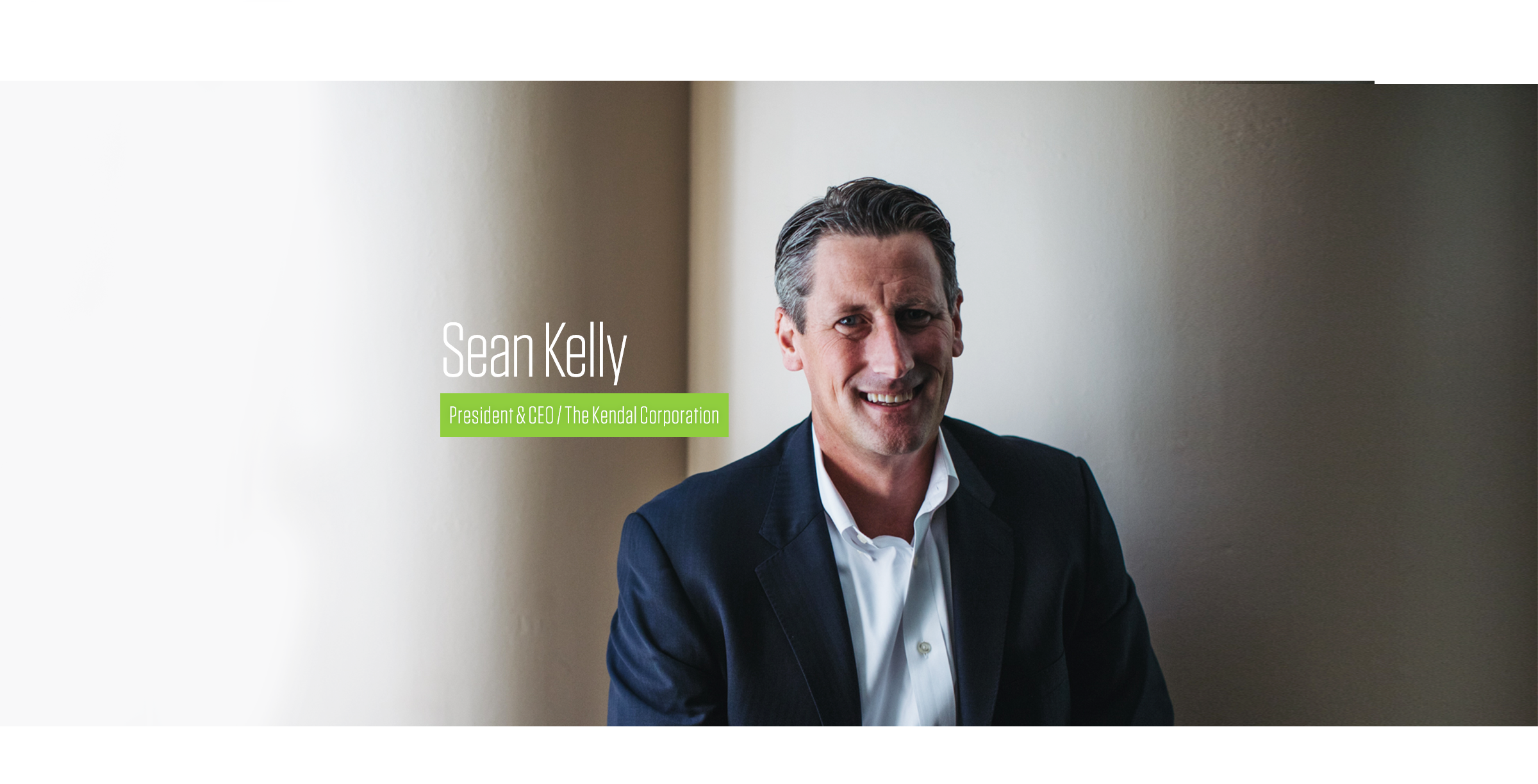Meet Brenda Bacon, co-founder, President and CEO of Brandywine Living and Board Chairman of Argentum. Bacon’s dual roles make her one of the most visible leaders in senior living: New Jersey-based Brandywine serves more than 2,800 residents across 27 communities, while Argentum is one of the largest national trade groups for senior housing operators. [Note: Bacon turns over the association reins this year to incoming Argentum Chairman Loren Shook, CEO of Silverado.]
But while Bacon has long been at the helm of two firmly established organizations, she considers herself an entrepreneur by nature, and she has been an agent for change at both Brandywine and Argentum. We sat down with Bacon to hear how she continues to lead with an entrepreneurial spirit, lessons she learned from her time in the political arena—and why her book recommendations have caused some alarm in new hires.
Business, Politics, and Leadership
You had a health care concentration in business school at Wharton, but I’m wondering if you had an interest in senior care specifically?
I never had a particular interest in senior housing back then. I’ve always believed that access to health care and education are the game changers, and so if you had access to those then you could truly live the American Dream.
My affiliation with James Florio [then a member of the U.S. House of Representatives from New Jersey] came at that time because he was on the health care subcommittee in Congress, and they were doing the National Health Planning Act. [But my interest] was more about children, and if I talked about the adult population, it was more about economics, never as an age-cohort of seniors. That came later.
When?
I was working [as an executive] at Pennsylvania Hospital. I had just gotten my graduate degree.
In getting to talk to the doctors and the people working at the hospital, a lot of focus was on what’s happening to the elderly population in that Philadelphia market. When I left Pennsylvania Hospital and started my own consulting company, a lot of what I was doing with hospitals and the people who were developing facilities was with long-term care.
All of our Medicaid, Medicare and private dollars go to treating people at the end of their lives. If you’re going to improve access for all age groups all over the country, all economic strata, then you’ve got to be able to lessen the money that’s tied up at the end of life. It would be a different thing if the money that’s tied up at the end of life was producing some kind of wonderful experience as you age and you die. [But] it was awful and in many cases it still needs a lot of work.
You were a hospital exec, started a consulting company, were an elected official in Camden County and a senior advisor to Florio, after he was elected as New Jersey governor. What did you learn about leadership through those changes?
My undergraduate degree is in social work. I think the transition was really going from social work, where I was dealing person-by-person, and then realizing you needed to think bigger. You needed to change systems, to be involved with people who had the power to change those systems, and you needed to influence that power.
Then deciding to go to business school was part of, if you’re really going to make an impact in this world, you’ve got to have the knowledge to do it, the power, the positioning.
The leadership part is probably something that’s been with me for a long time. I grew up in Washington, D.C. and I was in the junior leadership program. President Kennedy gave us our awards; it was the last thing he did in the Rose Garden before he went to Dallas [and was assassinated]. It was something I’ll always remember. I am a bit of a command-and-control kind of person by nature, so it may just be DNA.
You also helped to transition Donna Shalala into the being Health and Human Services Secretary in the Clinton administration. Has your time in the public sector influenced how you lead?
Absolutely. Politics and government are the hardest things in the world. Business is a lot easier. Talk about dealing with a whole lot of egos and people who resist change!
You have bureaucrats who have been [there] for a long time, and they derive their power from what they do. They’re not interested in innovation or anything happening differently.
How would you define leadership?
In order to be a leader you have to have follow-ship. People have to be able to believe that you care about what you’re doing, that you’ve thought about it and that you’re approaching it intelligently. It’s so different than management, so different than giving somebody a title and saying, “Now that’s your portfolio and these are the things you need to do.”
How do you get people to understand and buy into a vision?
You have to develop a team that believes in that vision, because you can’t do it by yourself. [You invest time] in that team and understanding them and having a common view of where we’re going. We may not know how we’re going to get there right this minute, and a lot of things are going to happen. You have to be adaptable to what’s going on in the market, and you have to be nimble.
It sounds like you’ve been adaptable in your career choices as well?
I’ve never been a person who’s said, ‘In 5 years I want to be…’ I don’t think that way. I say take advantage of every opportunity that’s in front of you.
In terms of vision, where do you draw inspiration from?
I draw my inspiration from people and things that I see and things I read. I’m known to get up in the middle of the night and write a note or send an email and try not to text someone. I may be walking down this hallway and see something that registers later on, and two days later, I’ll be able to connect things and realize what we need to do.
If you emulate what other people do, like they’ve figured out how to do staffing so we should just do what they do, I think you miss a lot. You need to develop your own approaches.
Are there specific books about leadership that inspire you?
This is off the record. My favorite leadership book, because I think it’s the most sound and deepest, but also makes it interesting, is Leadership Secrets of Attila the Hun.
Why off the record?
It sounds awful!
I think people will appreciate it.
Okay, go ahead put it on the record.
When did you read it for the first time?
Maybe 20, 25 years ago. I’ve read it more than once. I’ve had a lot of people in my company read it from time to time.
To me, it talks about what your responsibilities are as a leader. You’re not a manager, you can’t blame circumstances. A leader takes responsibility and leads. A leader’s job is to make sure that the warriors have the right leaders to lead them. That’s your main job. Make sure you have the right leaders in place throughout your organization.
I’ve said to people who come to work with us over the years that this is a book they should read, and they’re always kind of like, ‘I don’t think I want this job…’
The Future of Argentum and Brandywine
After your diverse experience in the private and public sectors, you founded Brandywine. What was behind that decision?
With two partners, I built two nursing homes. Even when I built the nursing homes, I had a different vision of what the care should be and what the environment should be. I wanted to build a place that was a good environment where people would want to come and be with their families.
When we started Brandywine, assisted living was just starting. We started Brandywine in 1996, and I thought that seniors housing or assisted living was the answer to what I had been looking for. We can give people the help and support they want, but I believe the clear purpose of senior housing is to keep people independent.
I think of our senior housing communities as towns, like a little town on its own. You have 120 people, and they have their own private everything, so that if you get on my nerves and I don’t feel like dealing with you, I can go in my own room and do whatever I want to do. Yet, I have the support of nurses for medication, I’ve got activities. We call it Escapades… for Life! because we don’t just do plain activities, we do wild and crazy things.
So, you’re 85, you can have a chef, you can have a chauffeur, you can have a concierge, you can have the nurse down the hall, you can have the friends you play bridge with, you can do all of that.
Was it scary to start Brandywine at that time, when assisted living was just catching on?
Yeah, it was scary. We had $65 million of private equity money plus everything that I owned. My husband is a banker, so he’s a conservative guy, I’m the entrepreneur. You sign away your life, your everything. You have those times when you think, I’m not sure we’re going to make it. I never got to that point, but I will say that I should have. There should’ve been times that I thought we weren’t going to make it, but I never doubted it. I thought we were doing such tremendous things.
What’s your tolerance for risk in general?
I am a take high risk, reap high rewards kind of person. I believe that you go for it. You don’t do stupid things and make stupid decisions, but my eye is always on what I ultimately want to get to.
I always say to our team that I love to do the impossible. It’s fun to do the impossible, isn’t it? You have to get people to believe that you really can do anything… If you want to get there, figure it out.
You described Brandywine as a little town in and of itself. I think some of the new developments are in planned communities that have health care and commercial developments all built-in. Are you targeting those areas?
Yes, because I think life is changing a little bit.
In cities, people want to be able to go out to the store, the restaurant, all of the things that residents do today. What I’m finding is that communities used to think that if you built a facility, you needed to put it out there near the industrial park, or somewhere we don’t have to see it. People now understand that you don’t take your parents and put them out near the industrial park, they need to be right here in the middle of where you live.
Every zoning board doesn’t love that, but we’re going to make believers out of them.
Do you think that you are similar in your leadership styles with Brandywine and Argentum?
Very much. Argentum has been going through an extensive period of innovation and disruption during the past three years. A lot of it has grown out of the One Voice effort [to unite Argentum and the American Seniors Housing Association], which a lot of the CEOs in the industry devoted a year of their time to, three years ago.
What we found when we got together and were meeting off the record, there was such a common sense of purpose. You know CEOs are pretty difficult to manage. There are a lot of egos in the room. But if you cut away from all of the egos, you will see that we’re all saying the same thing. When we started to trust each other and say ‘Let’s work together and get this done,’ we were able to accomplish a lot.
Was it hard to see it get so close with One Voice and then have it not work out?
It got very close. It was a big disappointment for many of us and a curious one. We’re all CEOs, we all come from different parts of the country, different organizations, different financial partnerships, everything. But we all knew intellectually that this was the best thing to do. The problem is, that decisions are made by people and you have to really look at who feels a sense of loss from this. That’s the piece I think that we missed.
In hindsight, would you have done anything differently?
Any time you don’t get to the end result that you want, you have to be able to say that you would have done something differently. You have to be able to go back and think about what would have made that difference in this cohort of people. Who felt that they were better off if ASHA stayed a separate organization?
They would say, ‘We want more transparency, we’d like to have known this was coming, we were blindsided,’ and some of that probably was true.
Then you have a choice. You can say, ‘Gee, well it didn’t work, let’s go back to … whatever we were doing before.’ And we didn’t do that, which I think is what surprised people. All of the things that we wanted to accomplish, we can still accomplish.
I think it’s made some tremendous change with the standards that we are coming out with. We expect a thousand communities to be signed up to those in the next couple of months. We’re coming out with the first accreditation test for executive directors. That first test will be given in September. We expect about one thousand people to take that test over the first few months.
Developing Future Leaders and Innovators
Does senior housing need to do more to attract new entrepreneurs?
Absolutely. Most people think about it as, ‘Why do I want to spend my career taking care of elderly sick people?’ They think about it in a very health care, kind of scary way.
What can the industry can do to attract more young, top talents who are going to be the good operators?
We need to hire a lot of them and train them and not be concerned about somebody’s resume. [Maybe] somebody just got out of college and majored in accounting, but you see something in them that says you need to be an Escapades [for Life!] producer.
I think we also have to work with colleges and universities to make sure they develop curriculums that develop leaders for the future of our industry. Three weeks ago I was out at USC. Cornell does something, Washington State does something, and many of these students have come about from leaders in the industry working with their alma maters.
Are you involved with Wharton?
I have a mentee who’s a Wharton MBA student, who’s shadowing me. It’s very curious, because he’s said to me many times that [assisted living] is totally the opposite of what he thought [it would be]. I think that’s the biggest thing we can do, open up so people can come and take a look, and feel it. They’ve got to do that before they would choose to go into the industry, because I don’t think they really understand what’s going on.
Some leaders start in entry-level positions, but it’s tough to hire and retain those workers. I just talked to a community that says its top competitor for dining staff is Chick-fil-A. My jaw hit the table, because it’s a fine dining, very nice community.
They’re saying, ‘I make one dollar more [at Chick-fil-A], I don’t have to do any emotional investment, and maybe I’m not the kind of person to be emotionally invested in the 85-year-old. I just want to make sure the right piece of chicken gets in the bag.’ That’s a very empty life, but maybe you’re just starting school, you’ve got a new baby at home, or there’s some reason you have to make that calculus.
Let’s try to be competitive and let’s try to open up to them what can happen in their lives and the lives they touch, and how they can grow into a career, instead of just a job filling a bag at Chick-fil-A.
There are still fewer women than men in boardrooms. Were there challenges you had to overcome or do you have advice for women rising in the ranks?
That’s a very interesting question, and one loaded probably with lots of things I shouldn’t say, but I’m going to say them anyway.
I think one of the greatest challenges that women leaders have is that they think of themselves as women leaders. That needs to stop. You need to not think of yourself by your ethnicity or your gender or anything else. You’re a leader. If you’re a good leader, you can lead all kinds of people.
Every time you say, ‘Gee, they didn’t listen to me in that meeting because I’m a woman,’ you diminish yourself, and you shouldn’t do that. They didn’t listen to you because you didn’t make yourself heard and they’re a bunch of jerks. I’m going to make sure they wish they had listened to me, and that’s what you have to be focused on.
[I never felt that being a woman leader] was anything that closed doors for me at all. If there was a door closed, I kicked it open. That’s what you do. – Brenda J. Bacon
If you spend your time talking about how the world should be perfect, then you’re not really a leader. You’re sitting back and you’re wishing and hoping, you’re not leading and changing. I’ve never thought about myself as a woman leader, I’ve never felt that was anything that closed doors for me at all. If there was a door closed, I kicked it open. That’s what you do.









